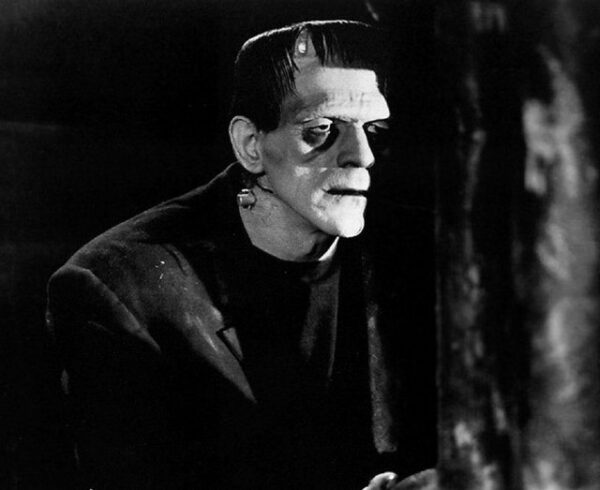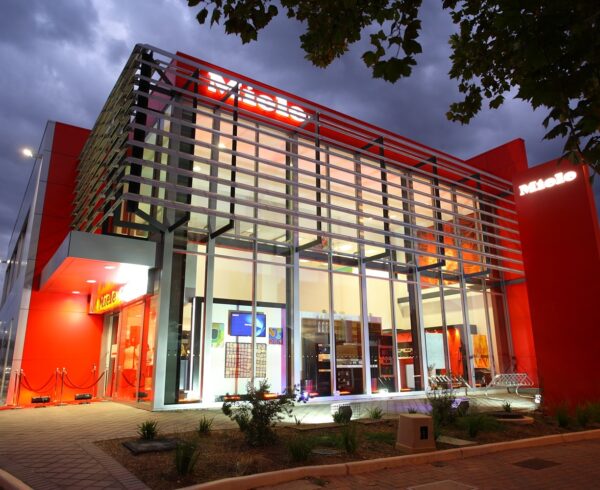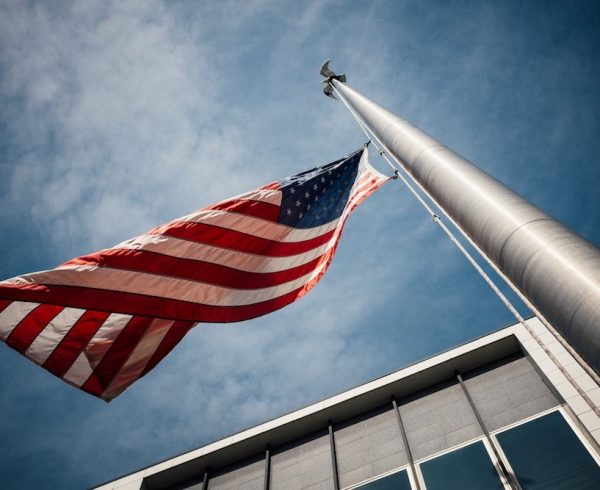Hollywood’s New Script: You Can’t Make Movies Without China
LOS ANGELES—February’s premiere of “The Great Wall” showcased the calculated balance between two superpowers.
Matt Damon walked the red carpet with his Chinese co-star, Jing Tian. Director Zhang Yimou thanked co-producers Universal Pictures and China-owned Dalian Wanda Group Co. The afterparty had sweet-and-sour chicken.
The movie’s poor showing didn’t slow the trans-Pacific collaboration. Hollywood has become so entangled with China that the movie industry can’t run without it.
Chinese investors and more than a billion potential moviegoers have made China indispensable to the film business. The country’s box-office total last year, at $6.6 billion, was the world’s second-largest compared with the first-place U.S., $11.4 billion. In a few years, analysts predict, China will be No. 1.
While the U.S. movie-ticket sales have remained relatively flat, China’s have more than tripled since 2011.
“We never thought of China 10 years ago. Now, we’re at a point where Hollywood can’t exist without China,” said Adam Goodman, a former production chief at Paramount Pictures. He now runs a film-production company backed by LeEco, a Beijing-based technology company.
Private and state-backed Chinese companies have invested tens of billions of dollars in U.S. film ventures over the past decade. The relationship comes with strings attached. Chinese authorities, censors and consumers influence nearly every aspect of American moviemaking in China, from scripts to casting to greenlighting sequels.
“We’re in a moment of significant disruption,” said Richard Lovett, president of Creative Artists Agency, which represents such clients as Sandra Bullock and J.J. Abrams. The firm announced Monday it was expanding its footprint in the country with a division called CAA China.
China’s ambition befits the big screen—to compete with the U.S. as a global storyteller and spread its perspective in the same fashion American filmmakers have for a century.
The U.S. dominated the movie industry from the start, with its stories of heroism, romance and adventure. Over the years, it has drawn investors from Wall Street, Japan and Germany who appeared more starry-eyed over movie premieres than profits. Hollywood executives called it dumb money.
China, seen as the next sucker, instead proved an exceptional student. Its companies formed partnerships with Hollywood studios to learn about plotlines and character development, as well as soundtracks and visual effects—similar to how it uncovered the secrets of semiconductors and aircraft engines.
“They think they can make money, but they’re also engaged in knowing every bit of the building blocks to jump-start [on] the U.S.’s hundred-year advantage,” said John Penotti, a producer and founder at SK Global, a film finance and production company with offices in Los Angeles and China that is backed by the China Cultural and Entertainment Fund, a private-equity group.
In November, China passed the U.S. in the number of movie theaters—the most in the world—adding screens at the rate of more than 25 a day. Some are the first theaters in small towns, drawing a new generation of fans.
China’s movie box office dipped slightly last year. Even so, Mr. Penotti said, “Social and cultural habits are being formed. It’s like the U.S. in the 1950s.”
China flexed its box-office power this past weekend, when “The Fate of the Furious” opened to $99 million in the U.S. and Canada—and $192 million in China, the biggest Hollywood opening ever in the country.
Chinese investors bring the support of a Communist Party that under China’s leader, President Xi Jinping, has made cultural influence an important piece of its long-term growth plans.
“We must make patriotism into the main melody of literature and art creation, guide the people to establish and uphold correct views of history, views of the nation, views of the country and views of culture, and strengthen their fortitude and resolve to be Chinese,” said Mr. Xi at the Beijing Forum on Literature and Art in October 2014.
Tensions between China and the White House have accelerated since the presidential election. Mr. Xi is seeking to strike a contrast with President Donald Trump as a champion of globalism, and he appears eager to advance China’s narrative—both by pressuring Hollywood studios to portray the nation favorably and, in the long term, by adopting Western filmmaking techniques for China’s own movie industry.
Full house
Like a movie plot, China’s rise was driven by conflict—in this instance, the financial crisis. Hollywood’s Wall Street financing dried up in 2008; U.S. movie-theater attendance stagnated; DVD sales, once a studio cash cow, slumped with the growth of streaming services, including Netflix Inc.
Around this time, China began an effort to introduce itself to the world as a cultural force with the 2008 Summer Olympics in Beijing as its opening act. Chinese officials announced investments of hundreds of billions of dollars to urbanize the country, transforming farmland into urban grids that included new, high-tech movie theaters. The seats began filling with members of China’s new middle class, a generation born under the one-child policy who had disposable income and an appetite for Western entertainment. Like other young people, they also wanted an excuse to get out of the house.
“I remember talking to Chinese citizens, hearing that they liked American movies, and the Chinese authorities knew that,” said Dan Glickman, chief executive of the Motion Picture Association of America from 2004 to 2010.
China, however, wanted more than Hollywood movies on its new screens. Authorities wanted Chinese filmmakers producing movies for Chinese audiences that would compete with the U.S. imports.
That desire got a push from a Hollywood panda named Po. The animated star of “Kung Fu Panda” was created by DreamWorks Animation SKG Inc., the Glendale, Calif., studio then run by Jeffrey Katzenberg.
Mr. Katzenberg didn’t cook up “Panda” to win over Chinese audiences. He and the DreamWorks team conceived of the movie in 2004, when China sales were barely an afterthought. At its 2008 release, China’s market was small but growing.
Yet “Kung Fu Panda” was a hit in China, grossing $26 million, a surprise to everyone. Members of the Chinese People’s Political Consultative Committee—a top political advisory body—debated how a U.S. company could understand Chinese culture well enough to make the movie.
“The film’s protagonist is China’s national treasure and all the elements are Chinese,” said Wu Jiang, an arts executive, at a Consultative Committee meeting, according to a contemporary account in a state-owned newspaper. “Why didn’t we make such a film?”
China’s box office exploded in 2010 with the release of “Avatar,” director James Cameron’s 3-D epic. Chinese moviegoers waited in line for hours, and scalped tickets sold for as much as $100. “Avatar” grossed $204 million in China, more than triple the record at the time.
Two years later, the quota of imported movies permitted into China was raised to 34 from 20 in a deal negotiated between then-Vice President Joe Biden and then-Vice President Xi. The deal all but guaranteed that most big-budget Hollywood features—except those with content deemed objectionable—would be shown in China.
“I prefer to watch Hollywood films because the chance of a domestic film being crappy is much bigger than a Hollywood film,” said Liu Jing, a 25-year-old postgraduate student studying finance policy in Beijing.
Ms. Jing said she became a fan of superhero films from Marvel Studios as a high-school student and now goes to movie theaters at least once a month.
Hollywood executives can rattle off the rules for getting a movie approved by Chinese censors: no sex (too unseemly); no ghosts (too spiritual). Among 10 prohibited plot elements are “disrupts the social order” and “jeopardizes social morality.” Time travel is frowned upon because of its premise that individuals can change history.
U.S. filmmakers sometimes anticipate Chinese censors and alter movies before their release. The Oscar-winning alien-invasion drama “Arrival” was edited to make a Chinese general appear less antagonistic before the film’s debut in China this year.
The superhero hit “Logan” was 14 minutes shorter in China after Chinese censors cut scenes of beheading and impalement.
For “Passengers,” the space adventure starring Chris Pratt and Jennifer Lawrence, a scene showing Mr. Pratt’s bare backside was removed, and a scene of Mr. Pratt chatting in Mandarin with a robot bartender was added.
Plot twist
There remains a gap between China’s promise and its profitability. A dollar spent at a U.S. box office typically generates about $2 in revenue in the decade after a movie’s release. That compares with about 29 cents in China, which is weak in post-theatrical moneymakers such as DVDs and TV deals.
When Paramount Pictures needed cash this year the studio didn’t turn to its parent company, Viacom Inc. Instead, former Paramount Chief Executive Brad Grey talked with nine investors—five from China—before agreeing to a $1 billion deal with Shanghai Media Group Corp. and Huahua Media.
When Mr. Grey was fired weeks later, his Chinese partners hit pause on the deal, triggering worry among investors counting on the overseas funds to prop up the ailing studio. Paramount hasn’t said if the deal has closed.
Some deals have allowed Chinese executives to vertically integrate their companies in a fashion that has been illegal in the U.S. since the 1940s. Wanda, for instance, owns a production company that develops movies, the sound stages where they are filmed and the theaters where they are shown.
Chinese officials schedule the release of U.S. imports during less popular weekends so they don’t cannibalize Chinese movie grosses, keeping Hollywood’s annual share of the Chinese box office at around 40%.
The deal setting the quota of U.S. movies is up for review this year, worrying Hollywood executives that disagreements over trade between the two countries could spill over into the movie business and hamper negotiations.
But across China, theater construction continues with screens that will need U.S. and Chinese movies. Cineappo, a joint venture co-owned by the state-run China Film Group, is at work turning karaoke bars into movie theaters to attract young Chinese couples out on dates, said Yi Li, a board director at the company.
“The old generation used to go to karaoke,” he said. “Now they go to the movies.”












